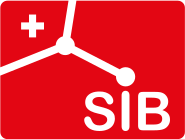Glossary
Special | A | B | C | D | E | F | G | H | I | J | K | L | M | N | O | P | Q | R | S | T | U | V | W | X | Y | Z | ALL
D |
|---|
datacollection of discrete or continuous values that convey information, describing the quantity, quality, fact, statistics, other basic units of meaning, or simply sequences of symbols that may be further interpreted formally (Source: Wikipedia) | |
databasea collection of data which is organized and stored electronically. Databases are designed for storing and managing data efficiently. | |
dataseta collection of data, usually for analysis or archiving purposes | |
I |
|---|
identifiera sequence of characters that identifies an entity which can be either a physical or legal entity, a bioinformatics resource or a concept | |
interoperablecompatible or suitable for exchange and use, be it by humans or machines | |
O |
|---|
ontologya common vocabulary used to share information in a domain. It includes machine-interpretable definitions of basic concepts in the domain and relations among them. | |
R |
|---|
regular expressiona pattern used to describe a sequence of characters | |
T |
|---|
terma term describes a specific concept in an ontology of vocabulary | |
U |
|---|
URIA URI (Uniform Resource Identifier) is a string of characters used to identify a resource over a network. URLs are essential to navigating the internet. [Source:TechTarget] | |
URLA URL (Uniform Resource Locator) is a unique identifier used to locate a resource on the Internet. It is also referred to as a web address. A URL is the most common type of Uniform Resource Identifier (URI). [Source: TechTarget] | |
